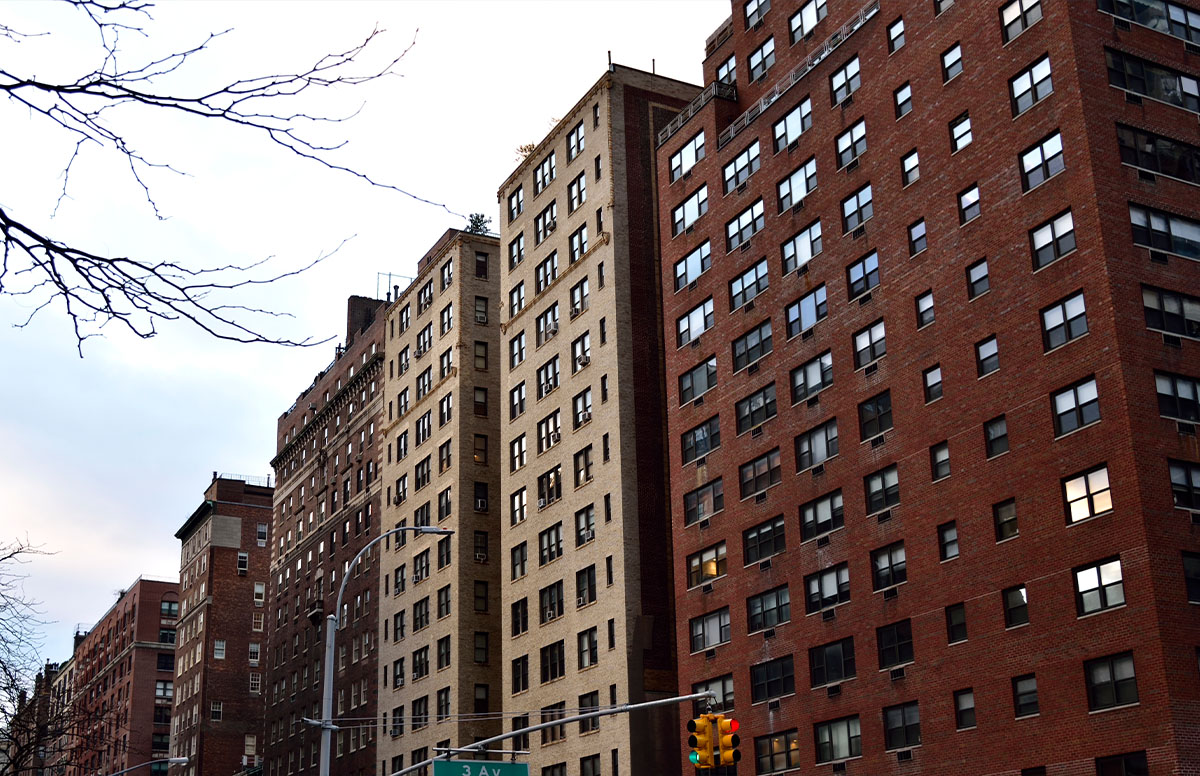On July 26, following the June 25 passage of its fiscal year 2025 HUD funding bill, the Senate Committee on Appropriations released the full text of its bill, S. 4796, and its accompanying report. This article augments our initial summary of the June 25 Committee action with information from the FY25 HUD bill and its report. The House Committee on Appropriations passed its bill, H.R. 9028, on July 10.
Section 202 Supportive Housing for the Elderly and Service Coordinator Grants
For the overall Section 202 account, the bill provides $1.046 billion, $115 million less than the House Committee-passed bill. While the House Committee’s bill and the White House’s FY25 request include no funding for the construction and ongoing operating subsidy of new Section 202 homes, the Senate bill provides $115 million for about 900 new Section 202 homes. The bill provides $813.4 million to fully fund the renewal of all Section 202 Project Rental Assistance Contracts and amendments.
In addition, the funding in this account provides up to $115 million for the renewal of service coordinator and congregate service grants. The Committee’s bill directs HUD to report back to appropriators after a review of the distribution of Section 202 service coordinators amongst states with the oldest populations (according to Census Bureau data) and the availability of eligible multifamily properties in those states that could qualify for the service coordinator program.
Further, the report asks HUD to assess if these areas are underserved by the service coordinator program and if program expansion funding should be prioritized to these states. There were no funds to expand service coordinator grants in the FY24 HUD funding bill and neither the House nor Senate FY25 HUD funding bills provide service coordinator expansion funds, despite LeadingAge’s advocacy to do so.
Section 8 Project-Based Rental Assistance (PBRA)
The bill includes $16.7 billion to fully renew the 17,700 PBRA contracts and for the efforts below.
The bill includes $10 million for HUD to provide budget-based rent adjustments to 20 to 30 PBRA contracts that have been renewed through the mark-to-market program and are distressed or at risk of becoming distressed. The bill directs HUD to prioritize properties that meet the following conditions: rents below 80% of fair market rent; REAC scores below 70; and designated as troubled or potentially troubled.
The bill also provides $25 million, as requested by HUD and supported by LeadingAge, for HUD to make direct loans, which may be forgivable, to owners of 15 to 20 PBRA properties to support rehabilitation or replacement to assist distressed PBRA properties that are already at market rate rents but still need additional capital to address the causes of their distress.
For these funds, the Committee directs HUD to target the most distressed inventory, incorporate resident consultation requirements in the application process, and provide monitoring over the life cycle of the loan. A condition of these loans is an extended affordability period of an additional 30 years beyond existing use agreements.
Regarding Project-Based Contract Administrators (PBCAs), the Committee acknowledges that “HUD has faced a complicated task of developing new PBCA arrangements before the current ones expire in 2025” and asks HUD to ensure that any new arrangements result in improved and cost-effective oversight and monitoring of the PBRA program. The report also urges HUD to assess the effectiveness of using resident surveys as a tool to help PBCAs conduct effective oversight.
Rental Assistance Demonstration
The bill authorized HUD’s Office of Housing to provide direct support to small properties and owners within HUD’s Section 202, Section 8 moderate rehabilitation, and McKinney-Vento single room occupancy programs who lack the capacity needed to meet due diligence and underwriting requirements needed to convert assistance under RAD. The Committee directs the Department to use not more than $2 million for this purpose through existing cooperative agreements with participating administrative entities until further data is available on the scope of demand among such properties.
Real Estate Assessment Center / NSPIRE
Regarding HUD’s Real Estate Assessment Center, which administers HUD’s program-wide National Standards for the Physical Inspection of Real Estate (NSPIRE), the bill’s report asks HUD to ensure REAC is adequately staffed to support NSPIRE and to coordinate with other federal agencies and external stakeholders to reduce duplicative physical inspections, which LeadingAge supports. The bill funds REAC at $50 million, level with FY24 funding.
Insurance Costs
The Committee’s report directs the HUD Secretary to coordinate with the Director of the Federal Insurance Office to complete a report on the current state of the property insurance market with an emphasis on affordable housing properties that are rent-restricted or rent-assisted, including HUD, USDA, Low Income Housing Tax Credit, and state-assisted affordable housing.
The report also directs the HUD Secretary to provide an analysis and prediction on the potential effects of increased insurance premiums on Section 8 Housing Choice Voucher and Project-Based Rental Assistance housing, including properties that have undergone or are undergoing conversion through the Rental Assistance Demonstration. LeadingAge is working with HUD and other federal agencies and stakeholders to develop and implement solutions to dramatically rising insurance costs.
Build America, Buy America
On the Build America, Buy America Act’s requirements to establish a Buy America Preference for certain federally funded infrastructure projects, the Committee tells HUD that an effective BABA waiver request process is needed “to appropriately balance BABA requirements with preventing unnecessary delays and costs in affordable housing development. LeadingAge appreciates the waiver suggestion but also believes the BABA’s requirements do not apply to federally assisted housing and has urged HUD not to impose them despite their laudable goals, for fear they would halt or greatly delay construction and rehabilitation and add significantly to costs.
Homeless Assistance Grants
The bill’s provision of $4.319 billion for Homeless Assistance grants, $268 million above FY24 funding, acknowledges the fact that “shelters and homeless assistance programs across the country are seeing sharp increases in the number of elderly individuals, many of whom have complex medical conditions that necessitate coordination between housing and healthcare services to help them become or remain stably housed,” as the report says. The bill provides no less than $20 million for technical assistance for communities leveraging programs, like Medicaid, to cover and provide housing-related supportive services and behavioral health care.
Older Adult Home Modification Program
Within HUD’s Office of Lead Hazard Control and Healthy Homes, the bill provides $40 million for the Older Adult Home Modification Program, an increase of $10 million from FY24. The program provides grants to nonprofits, state and local governments, and public housing authorities to enable persons 62 or older with low income to remain in their homes (owned or rented) through low-cost, high-impact home modifications. For this program, the report directs HUD to streamline this program and to adjust the current $5,000 cap on the cost per unit of home modifications.
One of the programs this program is modeled after is the very successful CAPABLE program, a client-directed home-based intervention program to increase mobility, functionality, and capacity to age in their community for older adults. CAPABLE consists of time-limited services from an occupational therapist, a nurse, and a handy worker working in tandem with the older adult as an inter-professional team.
In its report, the Committee directs HUD to no longer require an occupational therapist as part of the modification team because they are “not practical or necessary for all communities and excludes other successful models.”
LeadingAge encourages members and other stakeholders to reach out to their House and Senate members in support of strong funding for affordable housing for older adults.

 Shutdown Week Three: Impact of Ongoing Closure on Affordable Housing
Shutdown Week Three: Impact of Ongoing Closure on Affordable Housing Colleagues on the Move, February 18, 2026
Colleagues on the Move, February 18, 2026


